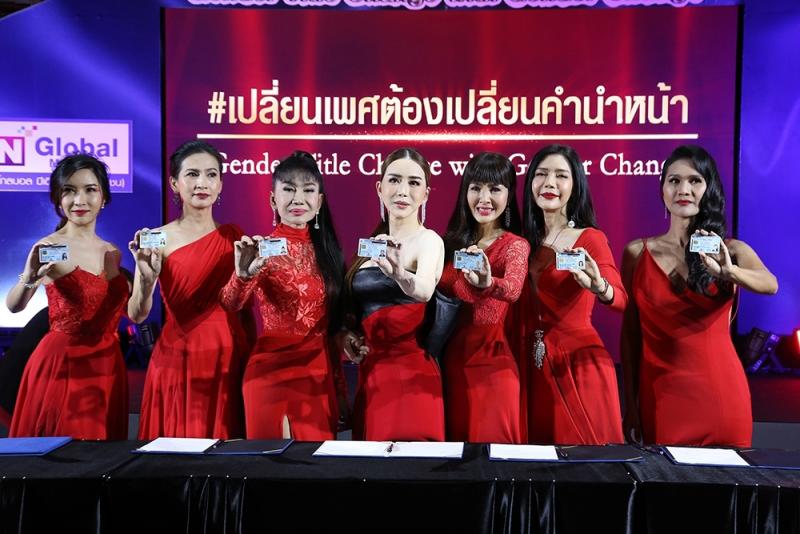Transsexuals more acceptable in Thai society
Transsexual people have become more acceptable in Thai society, according to an opinion survey released on Sunday by the National Institute of Development Administration, or Nida Poll.
The poll was conducted on July 30-31 on 1,259 people aged 15 and over of various levels of education and occupations throughout the country to gauge their attitudes to transgender people on various issues including their demand to change their title and for an additional box to tick their alternative genders in officials documents.
This followed a visit to parliament last month by representatives of a group campaigning for a legal right to recognition for transgenders to push for a bill that would allow them to change their title after they undergo sex reassignment surgery.
Asked whether it would be acceptable to them if their friends or colleagues at workplaces are transsexuals, a huge majority – or 90.15% – said “yes”, reasoning that people should be judged by their ability and conduct, not their sexual preference; 7.78% said “no”, saying they are not acceptable to them, and 2.07% were uncertain or had no comment. In a 2015 survey, the percentage of acceptance was 88.72.
Asked how they would react if a member of their family is transgender, 86.81% said he or she would be acceptable to them; 11.44% said he or she would not be acceptable to them, and 1.75% were uncertain or had no comment. In the 2015 survey, the percentage of acceptance was 79.92.
On a proposal for transgender people to be allowed to change their name title, 54.49% said they agreed with it; 36.53% disagreed, saying that confusion could reign in the process of identifying people when they contact government offices; and 8.98% were uncertain or had no comment. In the 2015 survey, only 39.44% agreed that they should be allowed to change their title.
Lastly, when asked if a box for transgender people to tick should be added into all kinds of government documents to be filled in, 65.69% said they agreed; 26.92% disagreed, saying that they should identify their original sex at birth; and 7.39% were uncertain or had no comment. The percentage of agreement was 59.36 in the 2015 survey.




